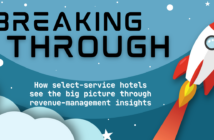by Ankit Srivastava
Introduction
Blockchain technology is one of the recent technologies of the digital age. As per many market gurus, after the computer and Internet, blockchain is the next best thing that can happen to the world. It is true that this technology is still in its nascent stage. But, the potential uses of the blockchain are yet to be explored. Blockchain has all the abilities to fundamentally alter the way in which information is recorded and accessed. Business enterprises are allocating more resources to research and incorporate this technology in day-to-day business operations.
Blockchain: The Basics
The function of blockchain technology is still unknown to many people. This awe-inspiring technology is built on a simplistic design. Blockchain tech is a list of digital records or a public ledger where transactions are recorded and stored. All the information is stored anonymously and is secured using cryptographic ciphers. Every record or transaction is saved in an individual block. In other words, with every new transaction, a new block is added to the network and linked to the previous blocks in the form of a chain – hence the name, blockchain. Each new transaction in the network has to be authorized or validated by the users in the network.
The blockchain is a decentralized network. In other words, all the information stored in the network can be accessed by any node connected to the network. This provides a greater level of transparency and a higher security in the network. Thus it is the simplistic design of this tech that makes the blockchain network tamper-proof. Additionally, each block also records the time and date when the record was created. The timestamp feature makes it convenient to trace any data in the network. Due to this, many blockchain application development companies are in demand.
Blockchain and the Hospitality Industry
Blockchain tech offers multiple advantages to all business sectors. The hospitality industry is no different. This technology operates on a decentralized network. This makes it very efficient to handle financial transactions as well as actual payments. The high level of transparency within the network greatly enhances the trust factor in the business. This technology is also good for handling the personal information of users. This is another one of the advantages of the blockchain network, which can boost the hospitality sector. Additional information on user reviews can also be incorporated into the network for future analysis.
It is true that blockchain technology currently is in its infancy. But hotels and restaurants, along with travel agencies, airline companies, and tourism agencies are working hard to adopt this technology. This technology can also benefit the stakeholders in the industry.
Ways to Transform the Hospitality Sector Using Blockchain Tech
- Guest Tracking
The guest tracking feature will allow hotels to track the location of the guests on a real-time basis. The hotel will receive alerts when the guest heads out to the airport from his house, when the guest has checked-in to the flight, and finally when the guest arrives at the hotel. This tracking feature can improve the customer experience by reducing the wait time for guest check-in at the hotels. It might seem too invasive, but guest tracking is only implemented after the approval from the customers. The customers will approve the level of information to be shared with the hotels or other members who are part of the network. Blockchain technology provides the technological platform that can potentially change the hospitality industry without intruding on the privacy of travelers.
- Food Tracking
Many restaurants can benefit from the use of blockchain for monitoring and tracking foods. The restaurants thrive on the food produced right from the time they are harvested in the farm, while using blockchain technology to track and monitor the supply chain management for the restaurants more efficiently. A blockchain network can be created which includes food producers, transport providers, and restaurant owners. This network will efficiently track the movement of the agricultural produce. All the information about the quantity, types, and grades of food can be found easily by accessing the private blockchain network. Transactions can be updated and stored on real-time and can be viewed by all the parties involved in the supply chain management. Furthermore, this technology can also aid in handling the payments for the transactions.
- Airline Loyalty Programs
Loyalty points can be attractive for many flyers. But for some, it might just be another one of the tokens that go to waste. Airlines can use the blockchain network to manage loyalty programs and offer loyalty tokens through the network. The network can also be devised in a way where customers can freely buy and sell these tokens to other users on the network. This way, the overall demand for the tokens will increase. The competitiveness among airlines will enhance and as a result, the services offered along with the loyalty points will also be improved. If two separate airline companies have loyalty tokens with different values, then it is an indicator of better service. The company with loyalty tokens of a higher value typically offer higher quality services – hence a higher value of the tokens. Additional measures can be taken to use such tokens and loyalty bonuses to pay for hotel bookings, restaurants, and cafes, as well as tour packages. Currently, there are some startups which are working on designing a blockchain platform where customers can redeem their loyalty bonuses. This platform will also allow consumers to buy, sell, and exchange their loyalty points.
- Digital Identification
The digital world faces an immense threat of identity theft. Blockchain technology can be used to counter this serious concern. Quite often, customers have to present proof of identification in flights and for accessing hotel rooms. At this point, the consumer is generally vulnerable to identity theft. Not only by the person checking the identification, but also by people who are nearby. Blockchain has the potential to change this scenario. All information and documents such as addresses, birth certificates, social security numbers, driver’s licenses, and passports can be stored in a blockchain network. This information is stored using a cryptographic cipher ensuring higher levels of security. A technology similar to QR codes can be used to verify the identification. This would make it impossible for identity theft, both physically as well as digitally.
- Smart Contracts Functionality
The smart contracts functionality is one of the most interesting features of blockchain technology. Smart contracts are codes that are self-executing based on the agreement between the parties. These contracts can be coded based on the agreed conditions between the service providers and consumers. In other words, the terms of an agreement between hotels and travel agencies with the consumers can be fed into the blockchain network. The smart contracts will automatically record this transaction and process payments immediately. This can drastically reduce transaction time and improve operational efficiency. The level of coordination between hotels and travel agencies will also increase. Travel agents can estimate the room availability on real-time. This will, in turn, boost sales. The smart contract functionality can also include the guests. This will make it possible to handle the check-in digitally. User ID is saved in the network and can be used for the authorization process. The same technology can also be implemented to manage franchisor and franchisee relations, car rentals and bookings, apartment leasing and so on. Furthermore, this functionality can also help in handling cancellations and refunds. Smart contracts can process and execute the refund. It can also be used to handle travel insurance claims. ■
About the Author
Ankit Srivastava is from Gurgaon, India and has experience in the field of IT and the latest technologies, mobile and web application development. He spends his time researching new trends such as technologies in travel, Internet of things, blockchain, etc. For more info, learn about the blockchain application development company.





1 Comment
Pingback: Blockchain in HORECA. Part 1: Tourism and Hotels - Nooor Blockchain Armenia